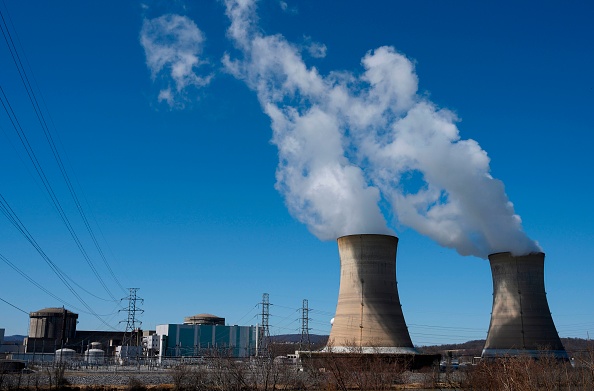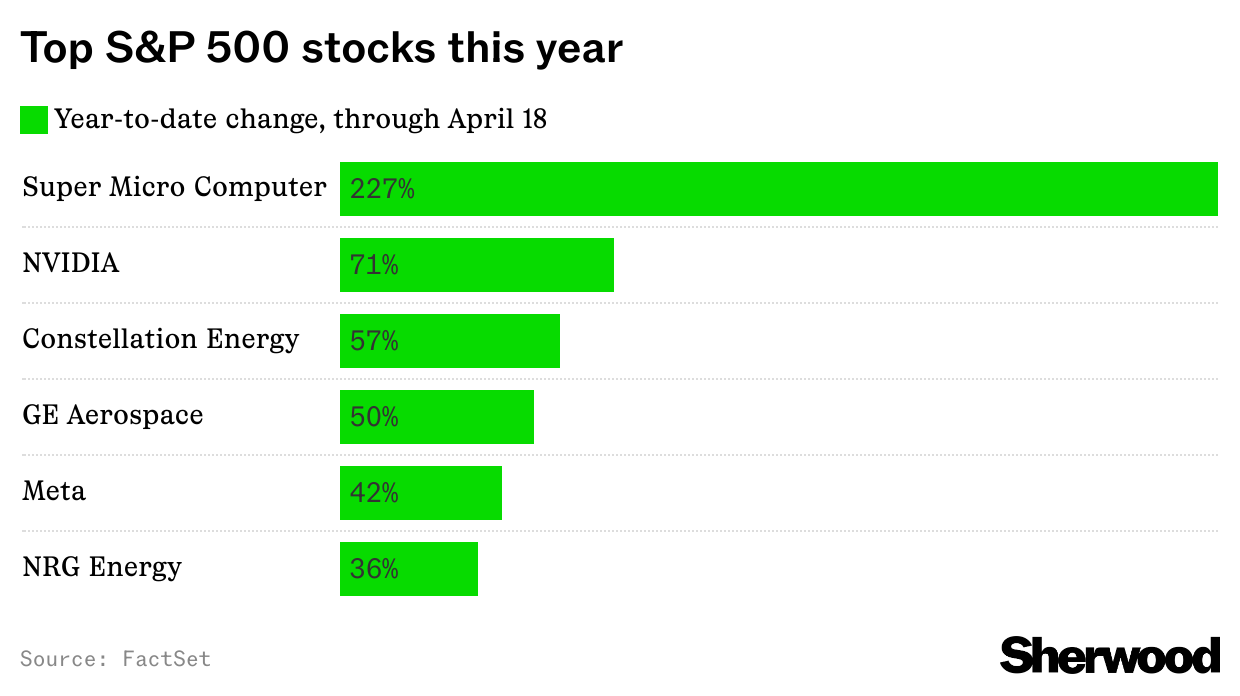Friday May.06, 2022
🛒 Ecommerce wipeout
Online retailers have a “pull forward” problem (Noam Galai/Getty Images)
Hey Snackers,
Welp. A day after staging a classic “relief rally” on the Fed’s rate hike, stocks wiped it all out and then some in their worst day since 2020. The Dow and S&P dropped more than 3% and the Nasdaq fell 5%, as the economic realities of high inflation and slowing growth set back in.
Just about nothing was spared: tech led the selloff (Netflix -8%), with an assist from ecommerce (Wayfair -26%... more on that in a sec). But even banks like JPMorgan and non-cyclicals like Coke and P&G got hit.
Click
Ecommerce stocks are getting hammered as shoppers get back to spending like it’s 2019
The return of (IRL) retail therapy… While you ditch front-porch packages for fitting rooms and food courts, online retailers are being left in the dust. In yesterday’s big selloff, shares of Shopify sank 15% after the popular ecomm platform saw sales slow for the fourth straight quarter.
- Ripped receipt: Shopify’s sales rose 22%, to $1.2B, but that was a fraction of its 110% gain from the same quarter last year.
- Troublesome trifecta: Execs blamed inflation, labor shortages, and a return to IRL shopping for the slowdown — and said the rest of the year doesn’t look much better.
Caribbean cruise > cyber sales... In the past two years, nearly a fifth of every dollar spent in the US came from online orders. Yet with consumers returning to their 2019 spending habits — on concerts, vacays, and Sunday brunch — the boom in e-buying is losing momentum. US ecommerce sales have dropped 3X compared to 2020 levels. That’s showing up in the bottom line of some of the biggest pandemic winners:
- Shares of Wayfair tumbled after the online furniture seller lost nearly 2M customers and $320M in sales last quarter.
- Both Etsy and eBay lowered their sales forecasts for the year, and didn't say when (or if) they’d return to pandemic-era profits.
- A week ago, Amazon’s stock had its worst day in over a decade after cooling sales led to its first quarterly loss since 2015.
The Great Normalization is here... Ecommerce sites benefited from a huge pull-forward boost in demand during the pandemic, fueled by stimmy checks and boredom. As Visa’s and Mastercard’s earnings showed, consumers are still opening their wallets — they just have new priorities. For platforms like Shopify, it means adjusting expectations for the new new normal of more balanced spending.
Slick
Shell — Europe’s biggest oil biz — posted a record $9B profit, yet whispers of a “windfall tax” are growing louder
Come Shell or high water… Soaring energy prices: bad for consumers, great for oil companies. How great? Yesterday, London-based Shell reported a record $9.1B quarterly profit — 3X last year’s — despite $4B+ in losses related to its leaving Russia. It’s something of a trend.
- Pumpin’ profits: In the most recent quarter, BP posted its highest profit in a decade, despite $26B in Russia losses. Exxon said it doubled profits from last year, and Chevron quadrupled its haul.
- Buy, buy, buybacks: Buoyed by bumper profits, all four oil giants plan to boost share buybacks and raise dividends, two ways to return $$ to investors.
Big buybacks, big blowback… US and UK lawmakers have started calling for a “windfall tax” on energy giants, a one-time tax on their excess profits. The idea is to use the cash to help consumers with rising prices at the pump. Critics say the money would be better spent investing in renewable energy.
- Winds of change: Spain and Italy already slapped windfall taxes on some energy companies, but experts don’t expect the US or UK to follow suit.
Windfalls come in many forms… Russia’s invasion of Ukraine gave oil giants a financial windfall in booming profits. It also gave them a strategic windfall: it illustrated how dependent the global economy still is on fossil fuels, whether we like it or not. Earlier this week, VW said it planned to keep using coal because of a proposed EU ban on Russian oil. Then Shell’s CEO told investors the war proves the need for big oil producers, despite the pressure to act on the climate crisis.
What else we’re Snackin’
- Shock: Covid killed 15M people in 2020 and 2021 — or one of every 500 people in the world — the WHO said. That would be nearly three times the previously reported toll.
- Fresh: Elon Musk has raised over $7B to help fund his $44B takeover of Twitter, reducing his personal risk in the buyout. The investors include a Saudi prince, Oracle cofounder Larry Ellison, and crypto exchange Binance.
- Plug: EV upstart Lucid said it delivered 360 cars last quarter and now has 30K reservations for its Air sedan. The company is sticking with its reduced production target of 12-14K cars for the year.
- Bud: More evidence consumers are flush with cash: Budweiser parent AB InBev saw quarterly profits grow nearly double what was expected, buoyed by beer drinkers trading up for pricier brews like Corona and Stella.
- Tree: Stanford’s getting $1.1B to fund a new school focused on the climate crisis. The donation comes courtesy of John Doerr, a Silicon Valley OG, and is the second-largest gift ever to an academic institution.
Friday
- Monthly employment numbers
- Earnings expected from Cigna, DraftKings, and Madison Square Garden Entertainment
Authors of this Snacks own: shares of Exxon, Twitter, Amazon, Shopify, and Netflix
Correction: We misstated that earnings were expected from Zillow and Berkshire Hathaway. They had already reported. Zillow reported on May 5 and Berkshire Hathaway on April 30. We regret the error.
ID: 2189242
.png)

